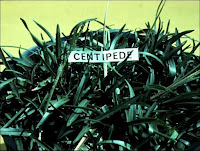
Question: The lawn care company recently applied an application of “winterizer” fertilizer to my Bermuda grass. Do you recommend winterizer fertilizer on warm season grasses?
Answer: If this is a well established lawn it is doubtful you need a fall application of fertilizer unless a soil test indicated a low level of potassium. Unfortunately, there are many products on the market sold as winterizer fertilizer. Cool season grasses such as fescue do most of their growing in the fall and spring and they need nitrogen to grow. However, many of these products are also used on warm season grass. Fall nitrogen application can be damaging to warm season grasses. Instead of increasing the cold hardiness, the opposite effect results. A warm fall will lead to continued vegetative growth which sets the plants up for cold damage. Check with your lawn care company and ask for the analysis of the fertilizer used. If the first number is 5% or below, it probably won’t hurt but it would be better if no nitrogen is applied to Bermuda and other warm season grasses after August.
I would suggest you have your soil tested to see if you need potassium or not. If you fertilize during the summer months it is very doubtful extra potassium in the fall will provide any benefit. However, if you do apply fall fertilizer, always apply it onto dry foliage to reduce the likelihood of salt burn.
A soil test provides a wealth of information and can be done for only $7 in Alabama and many state Extension offices offer similar services. Fall is a great time to test the soil because the lab is not as busy and if you need lime you have time to get it out on the lawn before spring growth starts. The lime will slowly move into the soil with winter rains and the pH will gradually rise in time for the first spring growth spurt. Once you receive your test results you may want to contact your local Extension office to talk with a horticulturist about your test results.
I have seen many test results that indicated an excessively high level of phosphorus and potassium. Phosphorus does not leach from the soil very quickly and it can build up to the point that no phosphorus will be needed for many years. Potassium can become so high that it interferes with the uptake of other elements such as magnesium and can result in a lighter green turf color. Also, be aware that an excessively high rate of potassium fertilizer can cause foliar burn.




No comments:
Post a Comment